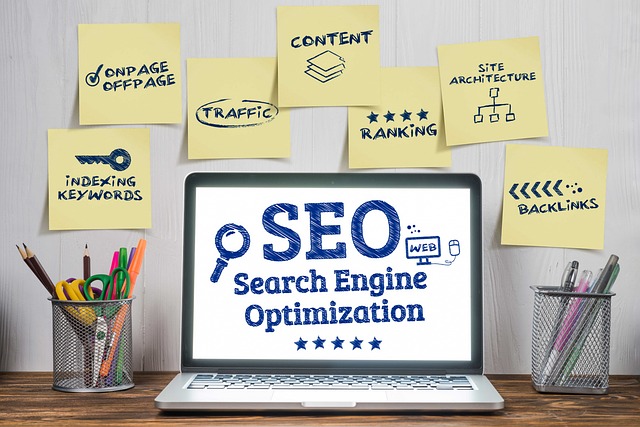Table of Contents Show
Introduction to Online Business Strategies
In today’s digital landscape, the implementation of effective online business strategies is paramount for organizations seeking to thrive amidst increasing competition. The rapid evolution of technology, coupled with an ever-growing e-commerce market, underscores the necessity for businesses to adopt strategies that not only drive sales but also enhance overall revenue. With consumers increasingly turning to the internet for purchasing decisions, businesses must leverage online platforms to reach their target audience effectively.
Online business strategies encompass a wide range of practices designed to attract and retain customers, thus facilitating growth and profitability. By optimizing their online presence, companies can engage with their audience more meaningfully, foster brand loyalty, and ultimately increase sales. This is particularly critical as consumer behaviors shift towards digital channels, necessitating a robust online strategy that can adapt to these changing dynamics.
Implementing effective online strategies offers a multitude of competitive advantages. Businesses that utilize search engine optimization (SEO) can enhance their visibility on search engines, driving organic traffic to their websites. Moreover, social media marketing enables brands to connect with consumers on platforms they frequent, thereby amplifying engagement and brand awareness. Additionally, data analytics and customer insights allow companies to tailor their offerings based on consumer preferences, further solidifying their market position.
As we delve deeper into the specific strategies that can boost online sales and revenue, it becomes clear that understanding and adapting to the digital environment is essential for sustained business success. This exploration will provide insights into proven methodologies that organizations can incorporate to not only survive but thrive in the modern online marketplace.
Optimize Your Website for Conversions

In today’s digital landscape, having a well-optimized website is critical for businesses aiming to boost sales and revenue. Your website serves as the primary touchpoint for potential customers, and therefore, its design should prioritize user experience. A user-friendly website facilitates navigation, allowing visitors to easily find products or information, which significantly enhances overall customer satisfaction and contributes to higher conversion rates.
One essential element of optimization is loading speed. Research indicates that users are likely to abandon a website if it takes more than three seconds to load. By reducing the size of images, leveraging browser caching, and utilizing Content Delivery Networks (CDNs), businesses can improve their site’s performance. This not only keeps visitors engaged but also fosters a positive perception of the brand, which can lead to increased sales.
Mobile responsiveness is another crucial factor in optimizing your website. With the growing trend of mobile shopping, it is imperative that your site functions seamlessly across various devices. A responsive design ensures that the layout adjusts to different screen sizes, providing an equally effective browsing experience on smartphones and tablets as it does on desktops.
Additionally, clear calls-to-action (CTAs) can significantly influence conversion rates. CTAs should be strategically placed and visually distinct, guiding users toward desired actions such as making a purchase or signing up for a newsletter. Phrases like “Buy Now” or “Subscribe Today” can drive immediate responses from potential customers, effectively funneling them toward the sales process.
Overall, by concentrating on these components—user-friendly design, loading speed, mobile responsiveness, and clear calls-to-action—businesses can create an optimized website that not only attracts visitors but also converts them into loyal customers.
Leverage Social Media Marketing
Social media marketing has become an essential component of any online business strategy, offering unparalleled opportunities for brand awareness and customer engagement. Platforms such as Facebook, Instagram, Twitter, and LinkedIn each serve unique demographics and can be utilized to reach potential customers effectively. Understanding the nuances of these platforms allows businesses to tailor their content, whether it be images, videos, or written posts, to resonate with their target audience.
Effective posting strategies are crucial for maximizing reach and engagement. Businesses should consider factors such as posting frequency, timing, and content variety. Research indicates that posts made during peak hours are likely to receive higher engagement rates. Additionally, integrating user-generated content, hosting polls, or creating engaging stories can enhance interaction. To maintain relevance, businesses should monitor trending topics and adapt their content accordingly, ensuring they are engaging with their audience on current subjects of interest.
In addition to organic strategies, businesses should also explore paid advertisements on social media platforms to broaden their reach. These ads allow companies to target specific demographics based on interests, location, and consumer behavior, effectively optimizing marketing efforts. Utilizing features such as lookalike audiences can help businesses attract customers similar to their existing loyal client base. Furthermore, social media ads can drive traffic to websites, leading to potential conversions and increased revenue.
The correlation between a strong social media presence and revenue growth is evident. As businesses engage with their audiences and create a vibrant online community, they build brand loyalty, which can transform casual followers into dedicated customers. Ultimately, leveraging social media marketing is not just beneficial; it is indispensable for those looking to boost sales and enhance overall revenue in today’s digital economy.
Implement Email Marketing Campaigns
Email marketing remains one of the most effective strategies for driving sales and enhancing customer relationships. The foundation of any successful email marketing campaign lies in building a robust email list. Start by encouraging website visitors to subscribe to your newsletters or special promotions, ensuring that the sign-up process is simple and accessible. Utilizing incentives such as discounts, exclusive content, or free trials can further entice potential subscribers to join your email list.
Once a sufficient number of subscribers are gathered, the next step is audience segmentation. By grouping subscribers based on demographics, behaviors, or past purchase history, businesses can tailor their messaging to resonate with each specific audience segment. This targeted approach not only improves engagement rates but also enhances the likelihood of conversions, as relevant content is more likely to capture the audience’s attention.
Crafting engaging content is critical to the success of your email marketing strategy. Use compelling subject lines that encourage recipients to open the email. Within the email, ensure that your message is concise, informative, and visually appealing. Incorporating high-quality images, actionable calls to action (CTAs), and links to your website or promotions can significantly increase interaction rates. Furthermore, personalizing content by addressing subscribers by their name or suggesting products based on their browsing history can enhance the effectiveness of the communication.
Evaluating the performance of email campaigns is essential for continuous improvement. Utilize analytics tools to track metrics such as open rates, click-through rates, and conversion rates. This data will help identify which strategies are working and which areas need adjustment. By consistently analyzing and refining your email marketing efforts, you can ensure that your campaigns remain effective at driving sales and fostering customer loyalty.
Utilize Search Engine Optimization (SEO)
Search Engine Optimization (SEO) plays a pivotal role in enhancing online visibility and attracting organic traffic, which is crucial for any business aiming to strengthen its online presence. The primary goal of SEO is to optimize a website so that it ranks higher in search engine results pages (SERPs), facilitating increased traffic and, consequently, improved sales. Implementing effective SEO strategies requires a comprehensive approach that encompasses both on-page and off-page techniques.
On-page SEO refers to the practices applied directly on the website to optimize it for better visibility. This includes optimizing title tags, meta descriptions, headers, and content by integrating relevant keywords in a natural manner. Conducting thorough keyword research is vital to understand the terms and phrases potential customers are likely to use when searching for products or services similar to what a business offers. By strategically incorporating these keywords, businesses can enhance the relevance of their content, leading to higher rankings in search results.
In addition to on-page SEO, off-page techniques, such as building quality backlinks, significantly contribute to a website’s authority and credibility. Backlinks from reputable sources enhance a site’s trustworthiness in the eyes of search engines, increasing the likelihood of ranking higher in SERPs. Engaging in guest blogging, collaborating with influencers, and establishing a presence on social media platforms can foster valuable connections that lead to quality backlinks.
In conclusion, a well-rounded approach to SEO that includes both on-page and off-page techniques is essential for any online business seeking to boost its traffic and sales. By investing time and effort into search engine optimization, businesses can achieve substantial growth, driving more organic visitors to their websites and ultimately enhancing overall revenue.
5. Adopt Content Marketing Strategies
In today’s digital landscape, adopting effective content marketing strategies is vital for businesses seeking to enhance their visibility and drive sales. Content marketing encompasses a variety of formats, including blogs, videos, infographics, and podcasts, all aimed at engaging potential customers. The cornerstone of any successful content marketing initiative lies in producing valuable, relevant, and high-quality content that resonates with the target audience.
Firstly, blogging serves as a powerful avenue for sharing insights and expertise while establishing authority within a particular niche. By consistently publishing informative articles that address customer pain points or relevant industry trends, businesses can attract organic traffic and foster trust with readers. Effectively optimizing these blog posts for search engines through keyword integration can further improve visibility, leading to greater customer acquisition.
Additionally, video marketing has gained significant traction in recent years, appealing to consumers’ preferences for visually engaging content. Creating short, informative videos that highlight product features, demonstrate usage, or share customer testimonials can effectively capture attention and encourage shares across social media platforms. Infographics, on the other hand, simplify complex data and present it in an easily digestible visual format, thereby encouraging user engagement and shares.
Podcasts have also emerged as a valuable content marketing tool, allowing businesses to connect with audiences on a more personal level. By offering insights, interviews, or discussions on relevant topics, companies can engage listeners and build a loyal following. By diversifying content offerings and nurturing an ongoing relationship with the audience through regular updates, businesses can convert leads into customers and drive revenue growth.
Ultimately, the key to successful content marketing strategies lies in prioritizing relevance and quality. By delivering high-value content that meets the needs of the audience, businesses not only enhance their online presence but also create opportunities for expanding their customer base and boosting sales.
Offer Promotions and Discounts
Utilizing promotions and discounts as part of an online business strategy can significantly enhance customer acquisition and retention. Various types of promotional strategies can be employed to attract new customers while encouraging repeat purchases among existing clients. Limited-time discounts are a powerful tool; they create a sense of urgency that can drive immediate sales. By setting a clear expiration date for the discounts, businesses can motivate consumers to act quickly, thereby increasing online sales substantially.
Another effective promotional approach is offering bundle deals. These can be strategically structured to encourage customers to purchase more items at a reduced price. For instance, if a customer is considering purchasing a specific product, presenting them with a bundle that includes complementary items at a discount can lead to higher average order values. Bundle offers not only boost immediate revenue but also enhance the customer’s perception of value, making them more likely to return for future purchases.
Loyalty programs represent yet another strategic promotional option. By rewarding customers for repeat purchases, businesses can foster a stronger relationship with their clientele. Loyalty programs can include points systems, discounts on future purchases, or exclusive access to certain products or promotions. Such programs are beneficial for customer retention as they create an incentive for customers to choose your business over competitors.
Incorporating these promotional strategies into your online business plan not only helps in attracting new customers but also aids in building a loyal customer base. By thoughtfully planning and executing promotions, businesses can markedly increase sales and foster long-term customer relationships. Overall, when done effectively, promotions and discounts pave the way for sustained business growth and improved revenue.
Foster Customer Reviews and Testimonials
In the digital marketplace, fostering customer reviews and testimonials plays a vital role in influencing purchasing decisions. Today’s consumers are increasingly relying on social proof to evaluate products and services before making a commitment. By actively encouraging customer feedback, businesses can not only enhance their credibility but also significantly boost sales and revenue.
One effective strategy for obtaining reviews is to make the process as seamless as possible for customers. Following a purchase, sending a follow-up email thanking customers and kindly requesting their feedback can yield positive responses. Additionally, providing direct links to review platforms or including a simple feedback form can encourage participation. Incentives, such as discounts or entries into a prize draw, can also motivate customers to share their experiences.
Once the reviews are collected, it is essential to showcase them prominently on various platforms, such as your website, social media, or any marketing materials. Displaying testimonials in an appealing format—such as customer quotes alongside products—can draw potential buyers’ attention and create a compelling narrative around the brand. User-generated content, including photos or videos shared by customers, can further enhance the authenticity of reviews, giving prospective customers a relatable connection to the product.
Moreover, responding to customer reviews, both positive and negative, demonstrates that a business values feedback and is committed to improvement. Constructive engagement with customers can alleviate concerns and foster stronger relationships. Ultimately, as customers see the experiences of others reflected in reviews, they are more likely to trust a brand and proceed with their purchase decisions, leading to increased sales and revenue. By focusing on building trust and credibility through effective use of customer feedback, businesses can harness the power of social proof to achieve significant growth.
Invest in Pay-Per-Click Advertising (PPC)
Pay-Per-Click (PPC) advertising is a powerful strategy for businesses looking to drive immediate traffic and enhance their sales revenue. By utilizing platforms such as Google Ads, Facebook Ads, and LinkedIn Ads, companies can target specific demographics effectively. This targeted approach ensures that advertisements reach potential customers who are more likely to convert, maximizing ROI.
One of the primary advantages of PPC is its instant traction. Unlike organic search engine optimization (SEO), which may take time to yield results, PPC campaigns can begin driving visitors to a website almost immediately after launch. This immediacy allows businesses to quickly test different offers, creatives, and messaging, enabling rapid adjustments based on performance data. Understanding ad platforms is essential; for instance, Google Ads focuses on keyword optimization, where bids are placed on specific search terms. In contrast, social media platforms rely heavily on engagement metrics and visual appeal.
To create effective ad campaigns, it is crucial to focus on compelling ad copy, suitable visuals, and clear calls to action (CTAs). The message should resonate with the target audience by addressing their pain points or desires. Regular testing of various ad components, such as headlines, images, and CTAs, is vital for determining what drives the best results. Analyzing performance metrics, including click-through rates (CTR) and conversion rates, provides invaluable insights into what is working and what requires modification.
Furthermore, optimizing ads for better performance is an ongoing process. By continuously monitoring results and adjusting bids, ad placements, and audience targeting, businesses can enhance their advertising efforts. This data-driven approach not only improves current campaigns but also equips marketers with knowledge for future initiatives. In conclusion, investing in PPC advertising can significantly boost site traffic and sales when implemented strategically and monitored diligently.
Analyzing Data and Customer Behavior
Understanding customer behavior is pivotal for business success, particularly in the online landscape. Analyzing data allows businesses to glean insights into how customers interact with their products and services, which can inform critical decision-making processes. By leveraging data analytics tools such as Google Analytics, Mixpanel, and HubSpot, companies can track key metrics that reveal customer preferences, buying habits, and trends over time.
Key metrics to focus on include conversion rates, bounce rates, customer lifetime value (CLV), and average order value (AOV). Conversion rates indicate the percentage of visitors who complete a desired action, such as making a purchase. This metric can signal whether marketing strategies are effective or if adjustments are needed. Bounce rates help assess content relevance, showing how many visitors leave after viewing only one page. A high bounce rate may suggest that the content is not engaging or that the site needs optimization to enhance user experience.
Customer lifetime value is another critical metric, as it measures the total revenue a customer is expected to generate during their relationship with the business. Understanding CLV helps in determining how much to invest in acquiring new customers while maintaining profitability. Similarly, average order value reflects the typical amount spent each time a customer makes a purchase. Increasing this value can significantly enhance overall sales revenue without requiring an increase in customer acquisition.
Once data is collected, the next step is to analyze it for actionable insights. This analysis can reveal customer segments that are most valuable, preferences for specific products, and even optimal times for engaging with customers. By implementing these insights into marketing strategies, businesses can develop personalized campaigns that resonate more effectively with their target audience, thereby boosting sales and enhancing customer experiences.
Learn Web Development with Digitalselling.com.ng





